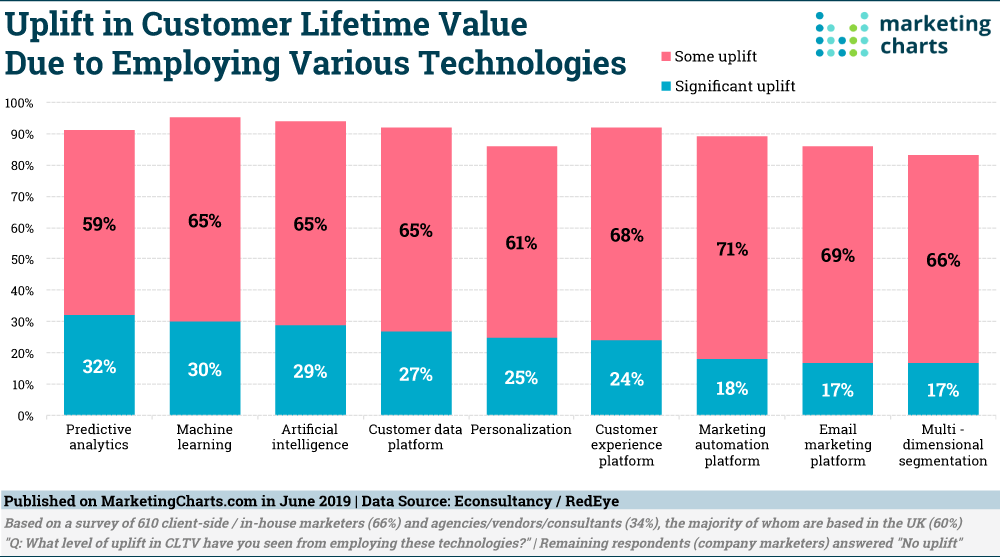What’s the key advantage full service agencies have over boutiques? Is it their ability to craft a seamless experience from production to distribution? What about cost? Maybe it’s their flexibility? The answer could be any of these, but one overarching theme spans through them all: full service agencies know exactly how to get your project done, because they’re the ones executing it every step of the way.
But is your agency making the best use of its expertise to reach consumers in the digital age? According to Ad Age, agencies of the future need to marry the deep industry knowledge they already have with talent that can translate it into data-driven strategic actions.

Now, that all sounds fancy and cool, but how do you actually do that in practice? Keep reading to find out.
RESEARCH AND ANALYSIS
Clients are becoming more and more savvy with digital products. That’s great for agencies, as you no longer need to explain why it makes sense to run a broad targeting ad on Facebook instead of a billboard on the freeway.
But that also means that you need to justify your decisions using evidence that clients both understand and are impressed by. And prior experience is only half the battle there. You need numbers. Ones that get granular. Clients want you to be able to quantify why a campaign worked, with the know-how of the best way to implement it in practice.
Part of quantifying success involves listening to the consumer you want to target. Social listening is vital for any brand that wants to key into customer sentiments. And with the shift towards digital and the rise of Gen Z, it’s becoming more and more important to understand how your target audience interacts with content, and how you can tap into those behaviors.
And full service agencies should be willing to make this investment. Being truly full service means that you’re able to guide the client through every phase of a campaign or project. And the consumer research phase is just as important as filming that video or broadcasting your event.
Luckily, with the rise of analytical software and the talent able to use it, there have been less barriers to entry for these research capabilities. And it’s not just consumers that benefit from this work, clients also derive huge value from these efforts, as shown in the graph below:

Based on the data, ‘Predictive Analytics’ and ‘Machine Learning’ seem to generate the most significant uplift for client’s CLV at 32% and 30% respectively. But how does an agency that’s never adopted advanced analytics get there? Do you hire a senior Data Scientist from Google? What about purchasing secondary data from a large repository? These methods might help in the short-term with a client that wants that one number you just can’t seem to find. But in the long-term, agencies need to build a data-centric culture that both fulfills broad client needs, and provides value to the whole organization.
HOW TO DO IT WITHOUT BREAKING THE BANK

There are better (and less expensive) ways.
Making an investment in talent to build a foundation of data-driven strategic thinkers is a start. And you don’t need to hire the leading machine learning expert to do it. Two ways you can start are:
– Training existing employees in the tools necessary to undertake these analytical endeavors,
Seeking junior level talent with the training and passion necessary to build this culture.
Here’s a practical example. Back in early 2020, Green Buzz Agency launched a Media Consulting division while partnering with Stand Together to optimize their digital content. As the division’s approach towards research and analysis was relatively new, this optimization required significant manual effort by employees to quantify their recommendations. While the project was successful, it definitely pushed the limits of GBA’s current capabilities and highlighted a key area of improvement.
Fast forward to today, GBA has now adopted advanced analytics in its current engagement with a mental health nonprofit. To build this data culture from the ground up, we’re conducting basic market research using social media APIs to track in real-time how consumers are responding to topics of interest for our clients. While we haven’t yet been able to develop complex machine learning models to predict exactly how one type of ad will impact our client’s business over another, this first step has made us more confident in our proposal recommendations, and satisfied our client as well. We believe this is a vital first step in building a data-centric culture here at GBA.
DON’T GET LOST IN THE WEEDS
Buzzwords like ‘big data’ and ‘real-time analytics’ are abound nowadays. But don’t get caught up in the hype or purchasing fancy enterprise software you don’t need. It starts with building a data-centric culture from the ground up.
It takes time and intentionality. Being able to predict the success of a client’s proposed strategy requires vast analytical expertise and experience. Many full service agencies have the latter through the sheer volume of projects undertaken. But are you really serving your clients? Are you really listening to the customer? If the answer to either of those questions is no, it might be time to reevaluate whether or not your agency is truly ‘full service’ and the steps needed to get there.
To learn more about how we’re adopting an advanced analytics approach, get in touch with our team.
